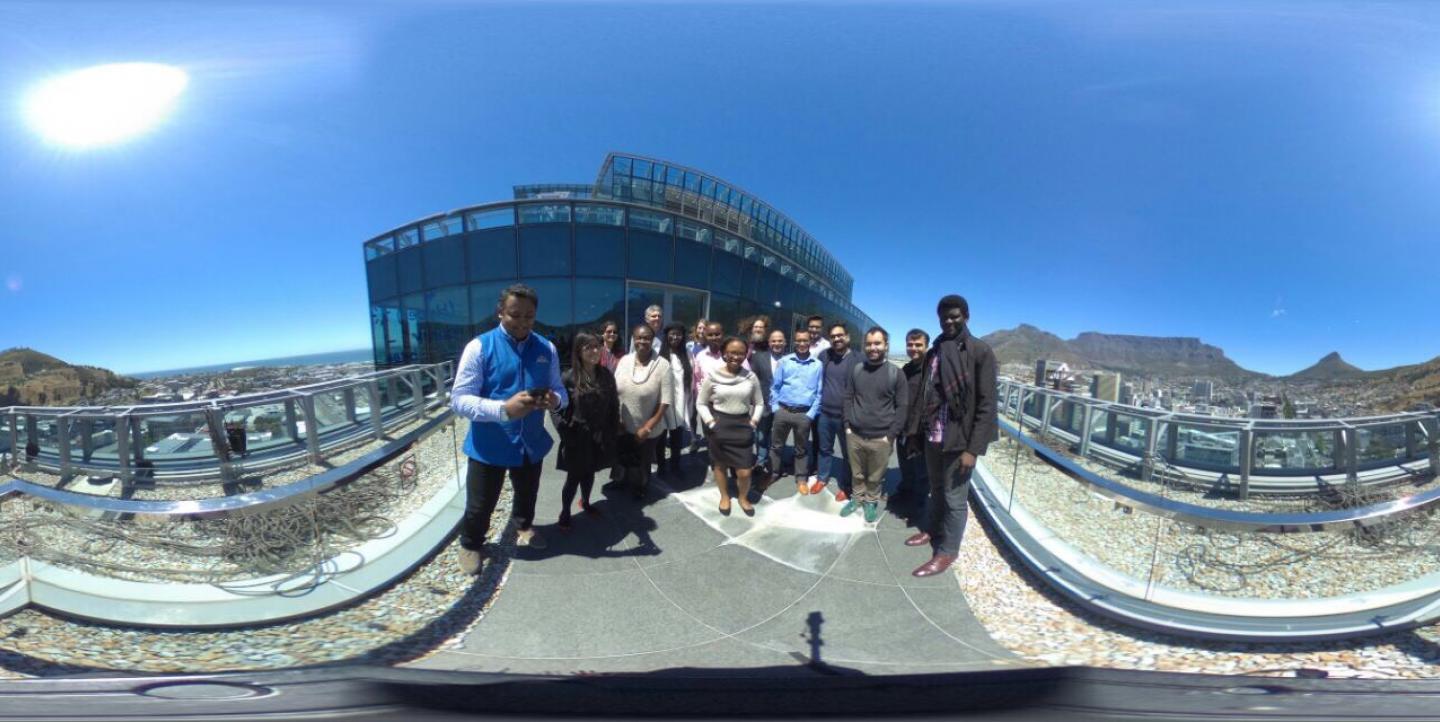More than 300 delegates met in Cape Town, South Africa in late November for Media Indaba Africa 2017, a digital media gathering focused on media inventions and solutions unique to the African continent, as well as ideas from across the world. The November 23-25 event included sessions on topics such as the fight against misinformation, sensor journalism, tech in newsrooms and the use of data to enhance news coverage.
With representatives from the media, NGOs, donor and civic tech organizations gathered to share information and compare experiences, the stage was set for new connections and collaborations.
ICFJ Knight Fellow Fabiola Torres López shared her insights on newsroom collaboration, drawing from her experience working on major investigative projects across Latin America. Torres is the co-founder of OjoPúblico, a Peruvian investigative newsroom behind collaborative projects such as the Big Pharma Project, a multinational investigation into malpractices by the pharmaceutical industry in Latin America.
Torres shared three critical lessons from the OjoPúblico experience:
Design thinking is key when launching collaborative projects.
OjoPúblico designs every investigation with a clear idea of what they need to find, the kind of results expected, as well as the content to be developed. According to Torres, “the new journalist is an architect of the digital reality,” and must therefore be equipped with the necessary tools. Journalists are now working with data that is unlimited in the way it can be searched, creating unlimited story dimensions, which require the use of tools such as Neo4j. Torres emphasizes the need for digital security when working on investigative projects, including the use of encrypted email to protect all partners. Prior project design ensures that all these components are in place before work begins.
Develop alliances.
Developing partnerships can help newsrooms cover stories that would otherwise be too expensive to publish independently. OjoPúblico’s model of transnational partnerships has been very successful in creating access to local expertise in new regions, developing new sources, as well as expanding content reach to larger audiences.
Dare to experiment.
Collaboration can help small teams to broaden their scope and experiment with different content types. Despite being a digital news outlet, OjoPúblico decided to print a newspaper in order to reach communities with little digital access. “We learned that not everyone remembers what is published in the web, and that innovation is not necessarily a tool, but a way of thinking,” says Torres. She encourages newsrooms to think about what the community will remember about the story, and focus their content around that.
The session on collaboration and using the data journalism toolkit included attendees from a variety of newsrooms, including South African health reporting outlet Bhekisisa, as well as a team from Code for Nigeria. The Code for Nigeria team is working with Punch, the country’s leading newspaper, to launch a suite of health tools that will help citizens access public health data.
“There is a lot to learn from the OjoPúblico approach that can be applied back in Nigeria,” said Code for Nigeria lead Nkechi Okwuone. “The OjoPúblico digital newsroom is particularly impressive as it hosts a lot of news apps that allow citizens to engage with data on different social issues, which we also hope to implement with news outlets back home.”
Media Indaba Africa is hosted by the continent’s largest data journalism and civic technology federation, Code for Africa, in partnership with Hacks/Hackers Africa. The event is organized under the leadership of ICFJ Knight Fellow Chris Roper.
Irene Wangui is an Africa program consultant at the International Center for Journalists.
Fabiola Torres López helps journalists in Central America, Mexico and Colombia to adopt the latest digital investigative journalism skills to improve their coverage on of corruption, transparency and governance issues. Learn more about her work as an ICFJ Knight Fellow here.
Images courtesy of ICFJ Knight Fellow Royden D'Souza

